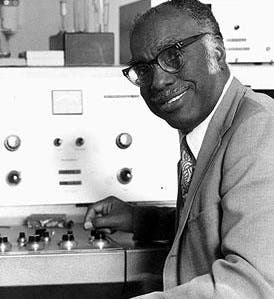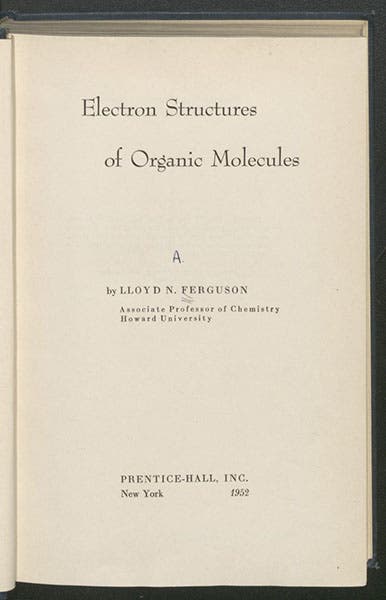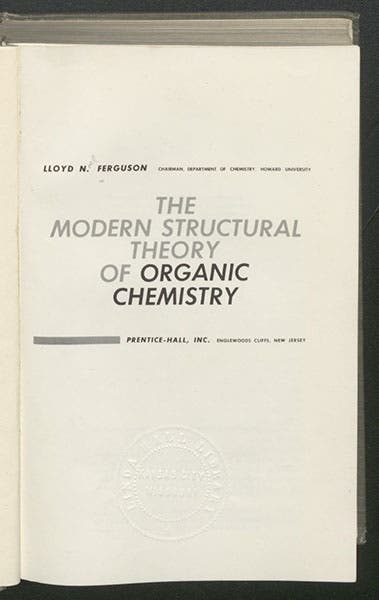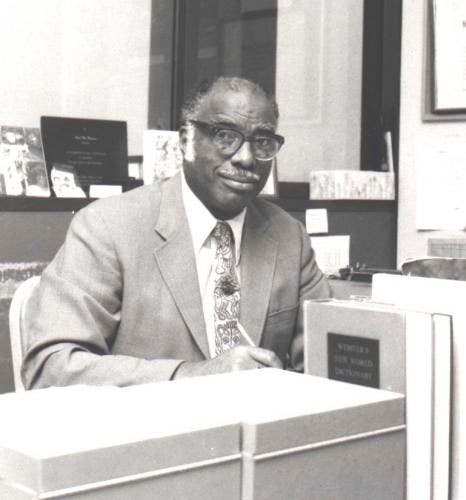Scientist of the Day - Lloyd Ferguson
Lloyd Noel Ferguson, an African American chemist, was born Feb. 9, 1918. Many chemists came into the field after being given a chemistry set as a kid, but Ferguson's family was too poor for such niceties, so Ferguson built his own chemistry lab in his backyard, financing it by making insect repellants and stain removers and selling them to neighbors. And he remembers, naturally, that he liked blowing up things. He skipped several grades in high school and used the years thus gained to work as a porter for the railroads to raise money for college. He was accepted into the University of California at Berkeley as an undergraduate, and did so well that they took him into their PhD program, which most graduate programs will not do except under exceptional circumstances. Ferguson apparently warranted the exception. He worked under Melvin Calvin, future Nobelist, and this being the war years (1940-43), they worked on a military project, trying to develop an inorganic compound, like organic hemoglobin, that would release oxygen on demand and then re-oxygenate itself. This might provide a supply of oxygen for welding onboard ship, where oxygen tanks were too dangerous if damaged by gunfire. It is said that the compound they developed was later put to use after the war, but I could find nothing more about it.
After he received a PhD in 1943, Ferguson found it difficult to find a teaching position in white America, just as his advisor had predicted, who suggested that he go into industry instead. But Ferguson found a small North Carolina black college that needed a chemistry professor, and he started his career there. He then moved on to Howard University, where he founded a PhD program in chemistery, the first such program in any black college anywhere. After twenty years at Howard, he was invited to become chair of the chemistry department at California State University, Los Angeles, were he would work until retirement in 1986.
Ferguson wrote a number of organic chemistry books and textbooks, four of which we have in our Library. We show the titlepages of two of them here. But his finest achievement was in promoting interest in chemistry in young black Americans. He founded the National Organization for the Professional Advancement of Black Chemists and Chemical Engineers (NOBCChE) in 1972, mainly for the purpose of youth education, and, for the American Chemical Society, he founded the SEED project in 1968, which provided financial assistance to black high school students who lacked the resources to pursue higher education. The organization he founded, NOBCChE, later established the Lloyd N. Ferguson Young Scientist Award, given annually to a promising young black chemist.
If you search Google Image for "Lloyd N. Ferguson," you will find pictures of Ferguson himself, but you will also find many photos of much younger African Americans, recipients of his award, and looking very happy about their prospects. That is the best legacy one could have. Ferguson died in 2011, at the age of 93.
Dr. William B. Ashworth, Jr., Consultant for the History of Science, Linda Hall Library and Associate Professor emeritus, Department of History, University of Missouri-Kansas City. Comments or corrections are welcome; please direct to ashworthw@umkc.edu.









